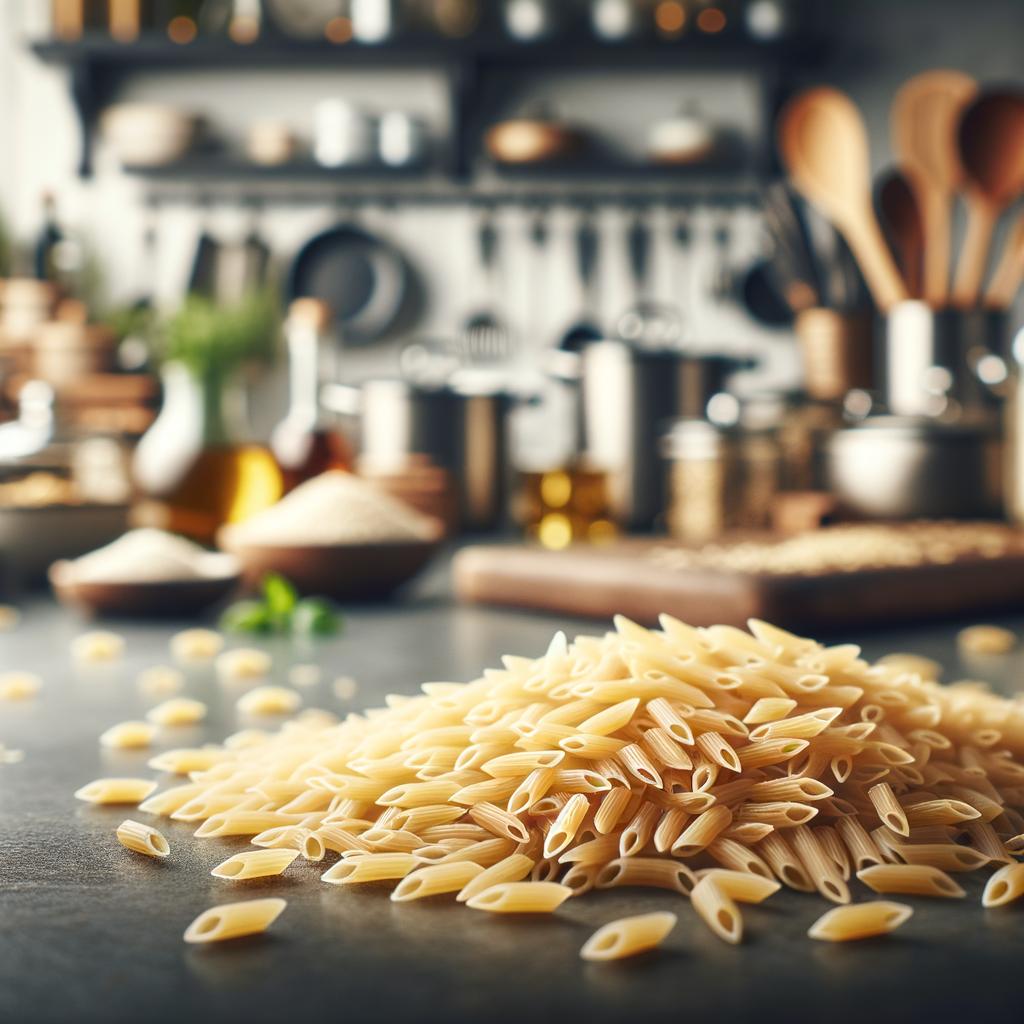Orzo Pasta

Description Orzo, a delightful and versatile type of pasta, is a staple in many kitchens across the globe. Its name, derived from the Italian word for 'barley', is a testament to its charming, grain-like shape. Orzo is typically small, resembling large grains of rice in both size and shape. It has a smooth texture and a firm bite when cooked al dente, making it a satisfying addition to a variety of dishes. Its flavor profile is relatively mild, allowing it to seamlessly blend with a myriad of ingredients. What sets orzo apart from other pastas is its chameleon-like ability to adapt to both hot and cold dishes, making it a unique and versatile ingredient in the culinary world.
Primary Uses Orzo's versatility shines in its wide range of culinary uses. It serves as a hearty base for soups, a robust component in salads, and a delightful substitute for rice in pilaf-style dishes. Mediterranean cuisines often feature orzo in their recipes, with Greek lemon orzo soup and Italian orzo risotto being popular examples. Beyond its culinary uses, orzo also carries a cultural significance in many Mediterranean and Middle Eastern traditions, often being associated with comfort food and family gatherings.
History The history of orzo is as rich as its flavor profile. While its exact origins are shrouded in mystery, it is widely believed to have been introduced by Arab traders to Italy during the Middle Ages. Over time, orzo gained popularity across Europe and eventually found its way to the Americas with Italian immigrants. There's a romantic tale in Italy that orzo was created to mimic the shape of barley grains, a staple in the diet of ancient Romans. Whether or not this is true, the story adds a layer of intrigue and allure to this humble pasta.
Nutritional Information Orzo, like most pasta, is a good source of carbohydrates, making it a high-energy food. It also provides a modest amount of protein. Whole grain orzo, in particular, is rich in dietary fiber and several B vitamins, including thiamin, riboflavin, and niacin. It also boasts a higher amount of iron compared to regular orzo. While orzo is not a low-calorie food, its nutritional profile can be enhanced by pairing it with lean proteins, vegetables, and healthy fats. Compared to other pastas, orzo's small size may help with portion control, as a little goes a long way in adding substance and satisfaction to meals.

